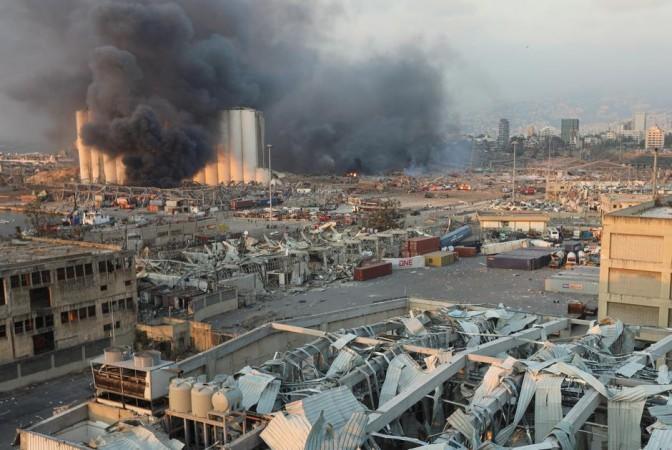Lebanon's main grain silo at Beirut port was destroyed in a blast along with the wheat inside, leaving the nation with less than a month's reserves of the grain although other vessels with supplies are on the way, the economy minister said on Wednesday.
Raoul Nehme told Reuters a day after Tuesday's devastating blast that Lebanon needed reserves for at least three months to ensure food security and was looking at other storage areas. He said reserves now stood at "a bit less than a month".

The explosion was the most powerful ever to rip through Beirut, leaving the port district a wreck of mangled masonry and disabling the main entry port for imports to feed a nation of more than 6 million people.
Beirut silo capable of holding 120,000 tonnes of grain
The Beirut silo was capable of holding 120,000 tonnes of grain, said Ahmed Tamer, the director of the port of Tripoli, Lebanon's second-biggest city. The port in Tripoli, Lebanon's second-biggest port, is not equipped with grain storage facilities but wheat could be transferred to warehouses 2 km (about one mile) away, he said.

At the time of the blast, the Beirut silo held no more than 15,000 tonnes of wheat as some millers had unloaded cargoes directly because of a delay in issuing letters of credit for payment, Ahmed Hattit, the head of the wheat importers union, told the local Al-Akhbar newspaper.
Hattit said existing reserves of flour were sufficient to cover market needs for a month and a half and said there were four ships carrying cargoes totalling 28,000 tonnes of wheat that had not docked at the port yet. Lebanon is trying to immediately transfer four vessels carrying 25,000 tonnes of flour to the port in Tripoli, an economy ministry official told news channel LBCI.














